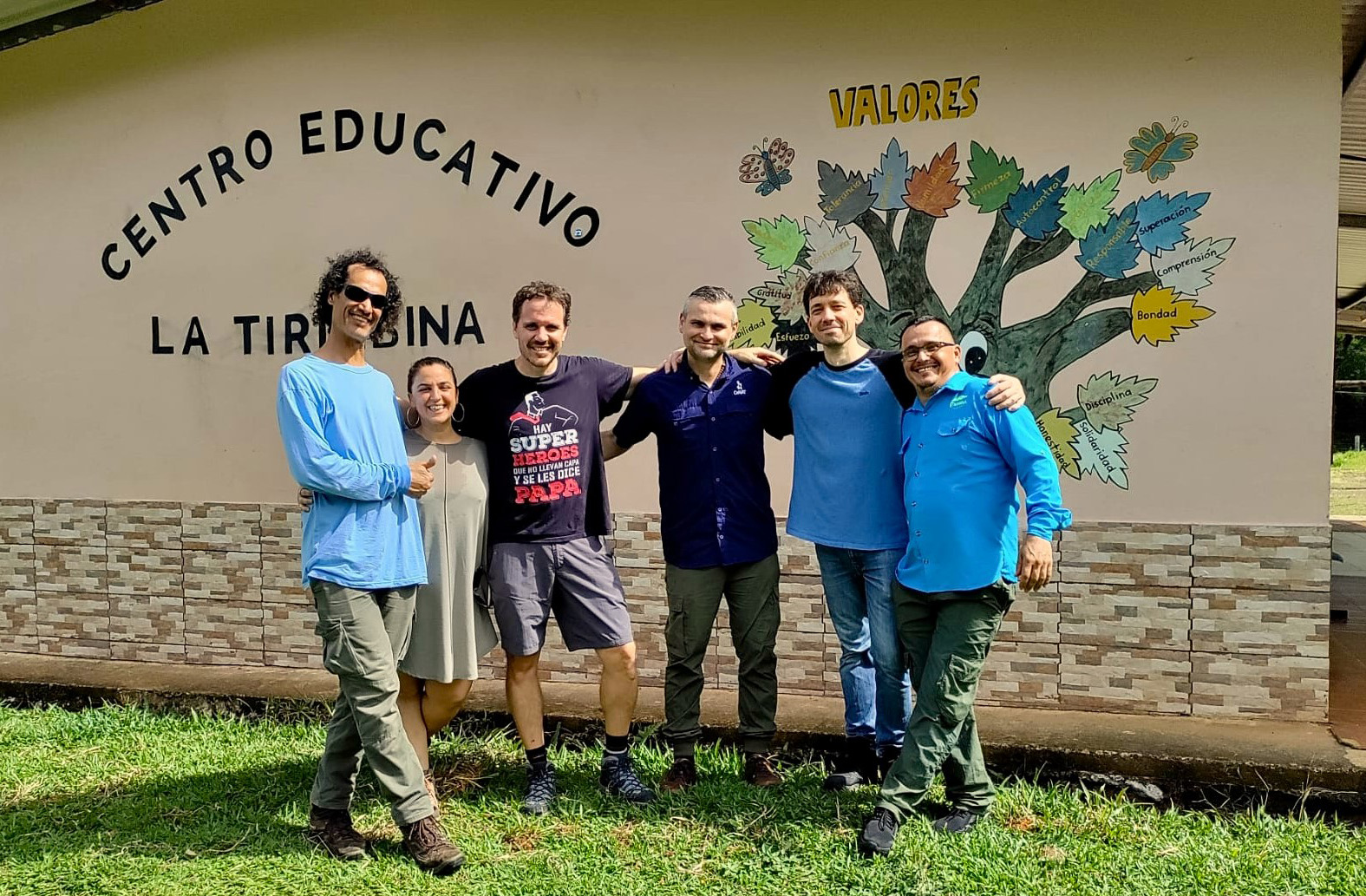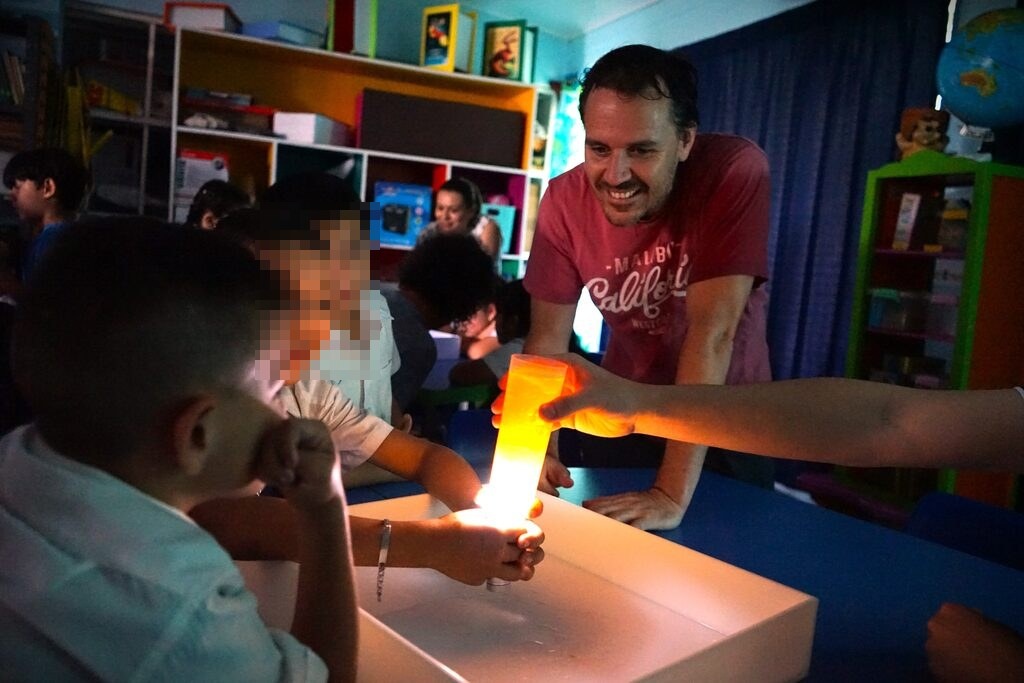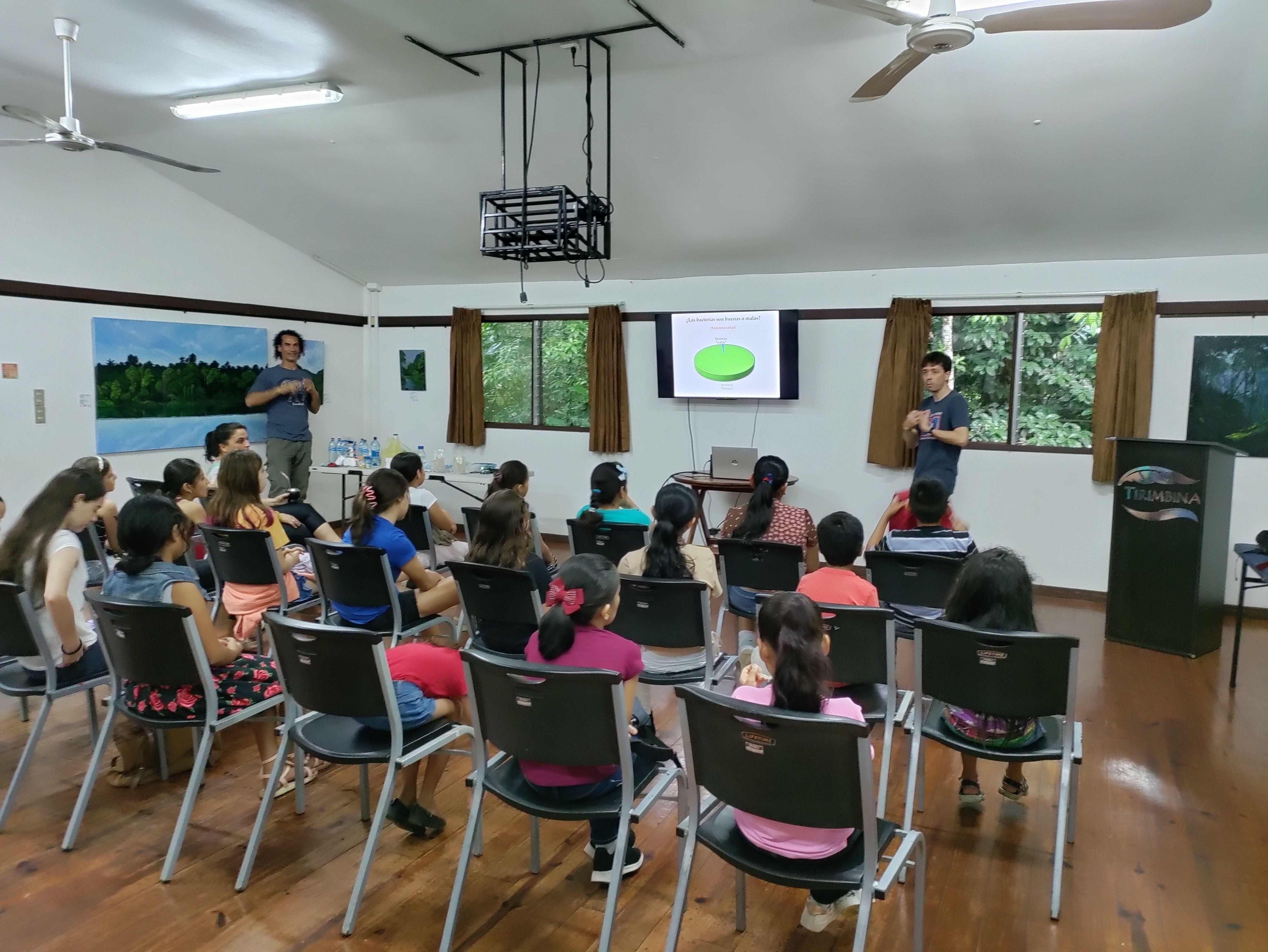
Researchers from the Margarita Salas Center for Biological Research (CSIC) Gonzalo Durante and Carlos del Cerro traveled to Costa Rica between November 17 and December 3, 2023, as part of the activities included in the project "Outreach and communication: key tools in the fight against climate change", funded under the 2023 call of the CSIC LINCGLOBAL program. This project, led by Dr. Durante, aims to raise awareness of the problems of climate change and the potential of environmental microbiology and biotechnology to mitigate its effects, addressing these aspects through scientific dissemination in different locations in Latin America.
In Costa Rica, science outreach workshops were held for primary school children, prioritizing schools in disadvantaged areas: the "La Tirimbina" unitary school and a leisure center, located in a rural jungle area in the Tirimbina reserve, and a school located in the town of Miramar. "The Invisible World" made it possible to explain the role of microorganisms on our planet, and their importance in all processes related to animal and plant life; with "What a fun science" the children carried out experiments related to microorganisms (such as bacterial growth and yeast fermentation) and CO2. In addition, in "A Scientific Treasure Hunt" the children had to overcome a series of brain teasers with a scientific background or related to climate change.
In addition, five training workshops were held for university students, researchers, and primary school teachers to exchange strategies for disseminating science, especially aimed at children. Gamification techniques and role-playing games, as well as STEAM activities in the classroom, the creation of scientific comics, and materials for dissemination and training of primary school teachers, were some of the topics covered.
The activities carried out in Costa Rica were complemented by the SIMA scientific symposium, the I Costa Rican Symposium on Environmental Microbiology: from Biodiversity to Biotechnology, held at the National Center for Biotechnological Innovations (CENIBIOT), organized by the project's Costa Rican partner, Prof. Max Chavarría.
The LINCGLOBAL-funded project establishes a consortium between CSIC and six Ibero-American institutions from five countries (Chile, Argentina, Uruguay, Costa Rica, and Mexico), with the participation of experts in the field of environmental microbiology, biotechnology, and ecology, and experience in outreach activities.
It is expected that the collaboration between the seven partners of the consortium will result in the establishment of synergies between their respective institutions to request joint research projects and collaboration networks (iCOOP, CYTED, etc.). In this first trip, three scientific collaborations have been consolidated, focused on the metagenomic and microbiome study of samples from CO2-rich environments; the study of fungi found in samples rich in lignin residues; and the study of the microbiota associated with samples rich in rhizobiaceous bacteria, respectively.
In addition to the trip to Costa Rica, visits to Santiago and Punta Arenas (Chile) and Mexico are planned for 2024. For 2025 activities will be carried out in Montevideo (Uruguay), Cordoba (Argentina), and again in Costa Rica.
The CSIC LINCGLOBAL Program, within which this project has been awarded, aims to promote interaction between Ibero-American and Spanish researchers in the field of global change while advancing toward the Sustainable Development Goals (SDGs).



